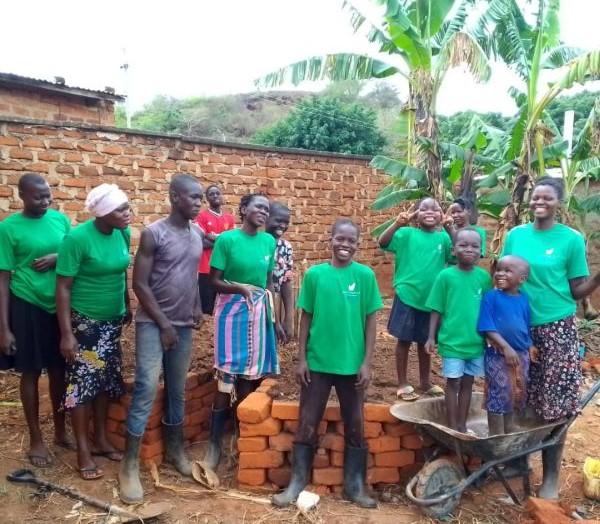エスタブリッシュド・プロジェクト賞
このプライズは、五年以上に渡っての実績のあるコミュニティグループ、団体、ネットワーク、企業が対象です。
私たちは、さらに多くの人々が再生のムーブメントに関われるように人々をインスパイアし、活動の輪を広げることに賞金が活用されることを期待しています。
本カテゴリーには少なくとも2つプライズがあり、それぞれ最高で2万5千ポンド(約400万円)が授与されます。※ 1ポンド=160円換算
小規模なプロジェクトに対し、少なくとも1団体にアワードを授与することを目指しています。
2025年賞の候補にノミネート:
Buzuruna Juzuruna Association
Buzuruna Juzuruna Association started with a small idea in 2016: to produce heirloom (non-hybrid, non-GMO) seeds and make them available to local communities in Lebanon as part of wider efforts to work towards food sovereignty.
Lebanon is deeply dependent on imports for sustenance: 80-90 percent of wheat is imported and farmers mostly rely on imported hybrid seeds. The ancestral knowledge needed to produce seeds has also been lost with a huge generational gap in Lebanon in the agriculture sector and little knowledge transmission.
With the help of friends and other local permaculture initiatives, Buzuruna Juzuruna Association set up a training curriculum with a focus on agroecology practice. It provides everything that is needed to begin food production (seeds, compost, seedlings, bio inputs, information).
In addition to this training, the Association has also:
- Started movement building, driving around the country to meet communities, holding spaces for remembering ancestral practices and thinking about how to apply them now with the support of science.
- Inspired contacts made through this work to set up a local seed production network (HOBOB) as part of efforts to make more seeds and knowledge available across the country.
- Started a pilot project in Northern Lebanon to integrate olive groves within a more diverse and sustainable production system that includes for example vegetables, eggs, rain water harvesting and ‘wild’ zones.
This practice (agroecology, building circular economies, equality) is part of Buzuruna Juzuruna Association’s regenerative approach.
- 2025
- Established Projects
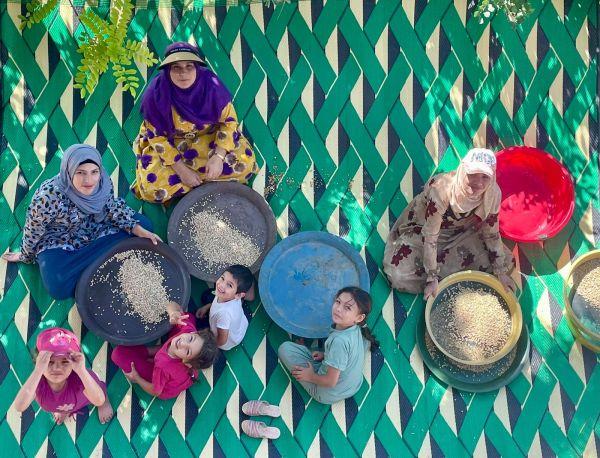
プロジェクト情報
- Arabic and English
- https://www.instagram.com/buzurunajuzuruna
- Buzuruna Juzuruna Farm, Ein Bishr street, Saadnayel Bekaa zahle, Lebanon
Dalia Association
Dalia Association is a community foundation established in 2007 with the belief that Palestinians should control their own resources for durable development for future generations.
The Association mobilizes and properly utilizes the resources necessary to empower a vibrant, independent and accountable civil society by acting at the grassroots level, through community-controlled grant making.
Dalia Association community development approach focuses on four dimensions that ensure holistic community development: Ecological, Local economy, Social, and Cultural.
Communities are empowered by being able to control their own development through identifying
problems within their community and enacting their own solutions deciding their needs and priorities.
Dalia’s approach in based on the following pillars:
- Making grants to support inspirational and relevant civil society initiatives, especially grassroots efforts that seek to supplement local resources.
- Linking resources revolved around knowledge and skill sharing and fostering collaboration among diverse groups, institutions and organizations. This helps decrease our dependence on outside resources.
- Encouraging giving to cultivate a culture of giving rooted in solidarity and cooperation while revitalizing the indigenous concept of ‘Al-Owneh’ (‘helping-out’) which manifests as a reciprocal support system, benefiting the whole community.
- Advocating for systemic change in the international aid system so that it respects Palestinian rights and responds to local priorities.
Dalia means “grapevine” in Arabic. Almost every Palestinian home has a vine tree, which symbolizes that with care, a grapevine can feed, shelter, and provide beauty for generations. This is exactly what Dalia does: it enables Palestinians to become their own community partners, decision makers, and supporters.
- 2025
- Established Projects
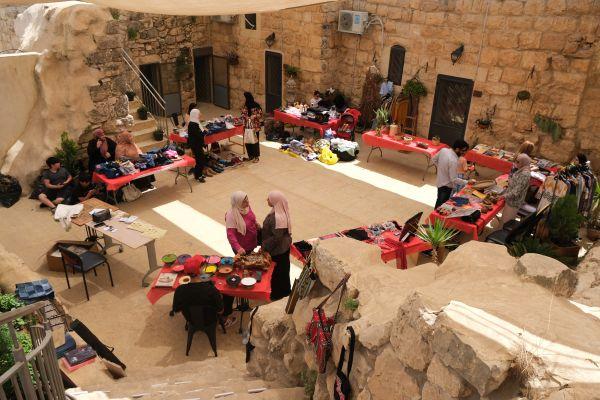
プロジェクト情報
- Arabic and English
- https://dalia.ps/
- https://www.facebook.com/DaliaAssociation
- https://www.instagram.com/daliaassociation.ps
- +970(2)2989121
- info@dalia.ps
- Dalia Association, 4 As-Sahl Street, PO. Box 2394, Ramallah, Old City, Palestine
Earth4Ever
Earth4Ever was established in 2019 to cultivate ecological health and empower marginalised farmers, with a focus on creating resilient farming models that prioritise soil health, water conservation, biodiversity, and nutrient-rich produce.
Its Vad Permaculture Demonstration Farm in Palghar, Maharashtra, India, serves as a hub for outreach and training programs. It also partners with indigenous women farmers and local NGOs to transition from chemical farming to regenerative, biodiverse systems.
Over the past five years, Earth4Ever has:
- Facilitated the setup of ten micro food forests and 45 kitchen gardens
- Launched a Market Garden Incubator project
- Engaged 20 champion farmers.
In the last 18 months, these efforts have generated 1,650 kg of fruits, herbs, and vegetables; 2,280 bunches of leafy greens; and 101 types of produce, grown on just 35,000 square feet of land.
This impact sparked a significant mindset shift in local communities, including with partner NGO, Sukhbhumi India Trust. It has now adopted permaculture principles across its other projects and been approached to train women farmers in Central India, showcasing the power of Earth4Ever’s efforts.
- 2025
- Established Projects
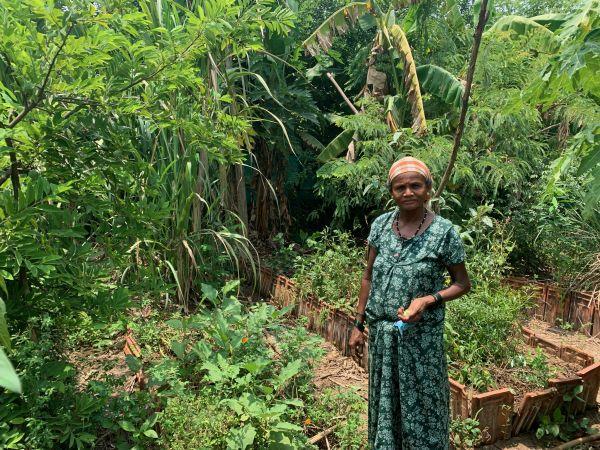
プロジェクト情報
- Marathi, Hindi and English
- https://www.earth4ever.in/
- https://www.facebook.com/earth4ever
- https://www.instagram.com/earth4everindia/
- Vad Permaculture Demonstration Farm, Ganeshpuri, Maharashtra, 401206, India
Forests Without Frontiers
Forests Without Frontiers (FWF) was established in 2019 to restore and celebrate nature with the help of music and arts. Coming from the global music scene, its founder originally wanted to give something back to the Romanian landscape she grew up in, which has been decimated by illegal logging. FWF has grown from that initiative.
In the context of a threatened and degraded natural environment, FWF collaborates with local people and partners to restore ecosystems through tree planting, tree tending and community events enriched with visual and auditory storytelling. The organisation believes in taking a whole ecosystem approach – supporting trees and forests, wildlife and people, music and art – all at once. It believes in preserving and restoring natural and cultural heritage together, recognising that they are intertwined.
FWF work is based on three driving principles:
- RESTORE – FWF restores degraded landscapes through planting mixed-species trees. It has planted 170,000 trees in the Romanian Carpathians and 10,000 in the UK.
- NURTURE – FWF hosts community tree planting, tending and nature connection events. Its participatory approach fosters connection with the natural world, which is of great benefit to participant’s mental health and wellbeing. Local musicians are invited to play nature-inspired songs, and ecologists give educational talks.
- INSPIRE – FWF creates music and art telling stories of community and landscape. It records in nature, creating soundscapes of endangered landscapes and preserving traditional songs, instruments and folklore which have also been lost, fusing them with electronica for multi-generational resonance.
- 2025
- Established Projects
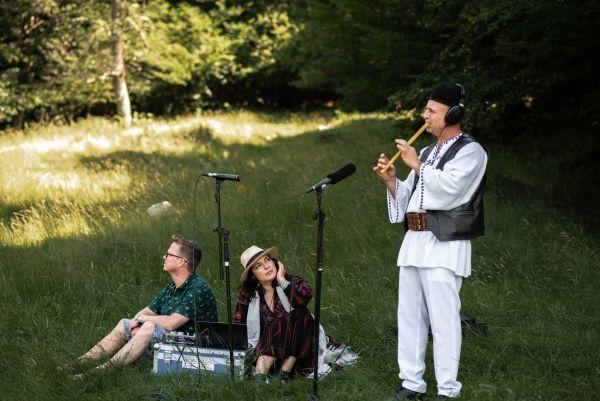
プロジェクト情報
- English and Romanian
- http://www.forestswithoutfrontiers.org
- https://www.facebook.com/forestswithoutfrontiers
- https://x.com/ForestsWF
- Werks Central, 15-17 Middle Street, Brighton, BN1 1AL
Glasbren CIC
Glasbren (the Welsh language word for ‘Sapling’) was founded to offer accessible pathways into permaculture skills, nutrient-dense local food and to explore the role community-scale farms could play in ecological, social and cultural regeneration.
In its first years, it established a 3-acre, holistically-designed, living landscape of food, from which it fed up to 50 households weekly through a Community-Supported veg box scheme.
Through the pandemic and a cost-of living crisis, it partnered with organisations including Social Farms and Gardens, UWE Bristol, the local council, food bank, charities and wellbeing hubs to pilot a solidarity veg box scheme and explore the role farms could play in tackling inequality, food poverty, waste habits and diet-related health issues. Glasbren offered free workshops, videos and resources in cooking with the seasons and food growing, also engaging children and local schools. Through this, it has organically nurtured an engaged permaculture community-of-practice through regular and open communication, volunteer programmes, community events, feasts and open days and through nurturing strategic partnerships, locally and nationally.
In 2023, the organisation was selected to become the long-term guardian of a 134-acre National Trust farm with a mandate to work for nature, people and the planet. The new site is just nine miles from the original farm and, drawing on its existing community network, Glasbren plans to create a community hub, an accessible and secure source of local food, and to become a beacon for what farms like this could be as vehicles for regeneration.
- 2025
- Established Projects
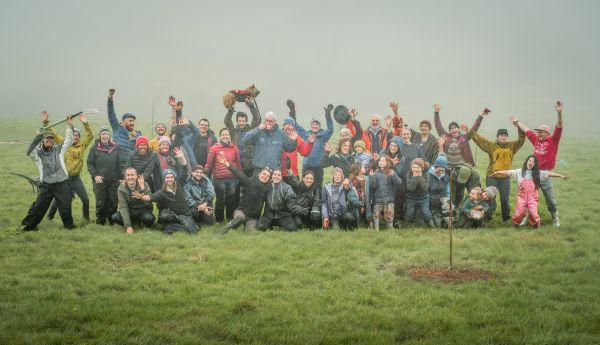
プロジェクト情報
- English and Welsh
- https://www.glasbren.org.uk
- https://www.facebook.com/GlasbrenCSA
- https://www.instagram.com/glasbren/
- hello@glasbren.org.uk
- Lords Parc Llansteffan Carmarthenshire SA33 5LT United Kingdom
Global Ecovillage Network
The Global Ecovillage Network (GEN) is an international organisation and vibrant community of practice that has been at the forefront of regenerative living and sustainable development for three decades.
Since its founding in 1995, GEN has united ecovillages, intentional communities, and grassroots initiatives worldwide, offering tools, frameworks, and inspiration for creating a world rooted in regeneration, resilience, and harmony with nature.
GEN’s network spans every continent, comprising thousands of ecovillages that serve as living laboratories for sustainable living. These communities provide holistic solutions to global challenges, including climate change, biodiversity loss, and social inequity.
In 2025, GEN will celebrate its 30th anniversary, a milestone marking three decades of innovation, collaboration, and impact. This moment offers an opportunity to reflect on GEN’s achievements and launch bold initiatives to advance its vision for a regenerative future, building on its legacy to address today’s urgent challenges.
At this transformative moment it seeks support to enhance its services, share knowledge globally, and accelerate the shift to a nature-centric world. Its key priorities in 2025 include:
- Establishing the Global Ecovillage Research Institute: Supporting early career researchers to integrate regenerative dynamics into research methodologies.
- Upgrading its online platform: Strengthening collaborations between Global South and Global North communities to address shared challenges.
- Boosting economic resilience: Creating an online ecovillage marketplace featuring consultancy services and regenerative travel opportunities.
- Amplifying art and narrative: Engaging diverse communities through a 30th Anniversary calendar of creative and cultural events that inspire regenerative living.
- 2025
- Established Projects
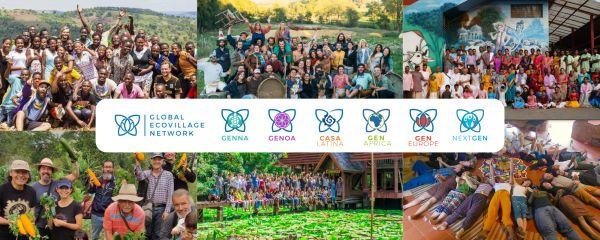
プロジェクト情報
- English and multiple others
- https://ecovillage.org
- https://www.facebook.com/GlobalEcovillageNetwork
- https://x.com/GEN_Ecovillages
- Lucky Star Lane 129e High Street Forres Moray, Scotland IV361DX United Kingdom
Grassroots Economics
Grassroots Economics Foundation (GrE) is a nonprofit organisation focused on empowering marginalised communities by developing decentralised economic systems, promoting social equity, and facilitating ecosystem restoration.
Founded in 2009, it has created innovative financial tools like Community Inclusion Currencies (CICs) and the Commitment Pooling Protocol, which help communities manage local resources, foster mutual aid, and regenerate ecosystems through practices like agroforestry, soil conservation, and water management. By merging traditional systems of mutual aid with modern technology, including blockchain, GrE has built resilient and inclusive economic models.
GrE operates in diverse environments across East Africa, including urban, rural, peri-urban, and refugee areas, especially in Kenya. These regions face common challenges like high unemployment, limited financial services, and environmental degradation due to deforestation and unsustainable land use. Despite these issues, these communities possess valuable cultural heritage and traditional ecological knowledge. GrE taps into this wisdom to restore ecosystems and reinvigorate economic and social structures.
Since its inception, GrE has:
- Revitalised ‘Mwerya’, a traditional mutual aid system, to promote community-led resource coordination in the modern context.
- Helped over 100 communities establish CICs (local currencies that allow communities to continue trading even when national currency is scarce), facilitating more than 1 million peer-to-peer transactions. This has reduced poverty and encouraged local trade without relying on national currencies.
- Restored over 1,200 farms and supported regenerative agroforestry across thousands of acres, improving food security and benefiting over 14,000 people.
- 2025
- Established Projects
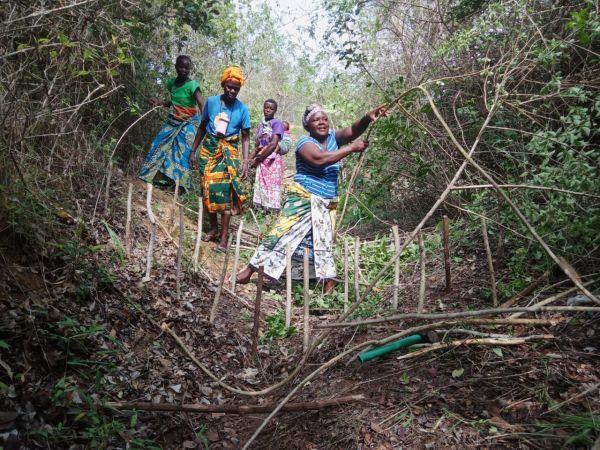
プロジェクト情報
- English
- https://www.grassrootseconomics.org/
- https://www.facebook.com/grassrootseconomicsfoundation?_rdc=1&_rdr
- https://x.com/grassecon?lang=en
- PO Box 993 mail box Nairobi 00100 GPO Nairobi Kenya
Huaynakana Kamatahuara Kana
Extractivism represents a constant threat to the Kukama territory in Peru and the loss of the Kukama peoples’ cultural identity.
The Kukama people conceive of the territory as a whole and women having an intrinsic connection to it. The term “kukama” for example is composed of two words: “ku” meaning ‘field’ and “kama” meaning ‘bosom,’ and it signifies ‘field-bosom’ or ‘nourished by the field.’ Given the Kukama peoples’ lives are reliant on the forest ecosystems of the lower basin of the Marañón River, and considering how they have adapted and coexisted with them for decades, the territory and the rivers are inseparable from their culture and way of life. They consider the rivers to be living beings with spirits, and therefore sacred.
Founded in 2001, Huaynakana Kamatahuara Kana embarked on a long journey of collective actions, protests, and mobilisations in pursuit of environmental justice as the river’s health declined as a result of extractive industries.
In September 2021 Huaynakana filed a constitutional lawsuit to urge Peru to recognise the Marañón River as a living being and subject of rights. In March 2024, the provincial court of Nauta ruled that the Marañón River has intrinsic rights, including the right to flow, to be free from pollution, and to be restored to environmental health. This decision also recognised Indigenous communities as the river’s legal representatives, defenders, and guardians. This landmark ruling was ratified by the higher court last November.
Huaynakana plays a key role in defending the Marañón’s rights and supporting the regeneration and conservation of the waterways through reforestation efforts because without the river, these unique forests cannot exist.
- 2025
- Established Projects
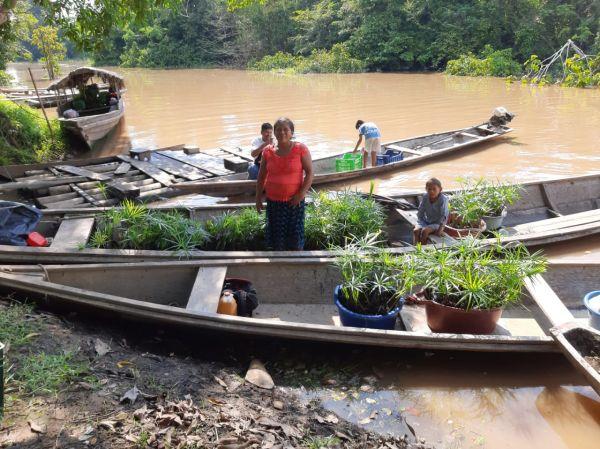
プロジェクト情報
- Spanish
- https://www.facebook.com/huaynakana
- Parinari Native Community Parinari District Loreto Province/Loreto department 16571 Peru
NGO Permaculture in Ukraine
Coordinating a network of permaculture centres, NGO Permaculture Ukraine offers training, events and educational resources across Ukraine, also ensuring accessibility for internally displaced people (IDP) and former military personnel.
The organisation was founded following the first Permaculture Design Course (PDC) in Ukraine in 2011, and has held at least one PDC annually, actively seeking funding to make training accessible to vulnerable groups.
Following the full-scale invasion in 2022, its focus expanded to include:
- Hosting displaced individuals.
- Advancing food security.
- Studying soil regeneration after military damage.
- Using gardening as a tool for trauma rehabilitation and community rebuilding.
The 14 permaculture centres provide training, shelter for IDPs and war-abandoned animals, and rehabilitation for children and adults. Its designers also create communal projects, including schools and homes for disabled people. Despite air raids and blackouts, NGO Permaculture Ukraine successfully hosted a two-day permaculture festival in Kyiv’s botanical garden in September 2024, drawing 100 participants eager to engage with top regenerative practitioners.
NGO Permaculture Ukraine empowers Ukrainians for sustainable living and transformative change. Through active social media engagement and collaborations with ecovillages, zero-waste networks, and other ecological movements, it extends its influence and inspires a growing audience to adopt permaculture principles for Ukraine’s regeneration.
- 2025
- Established Projects
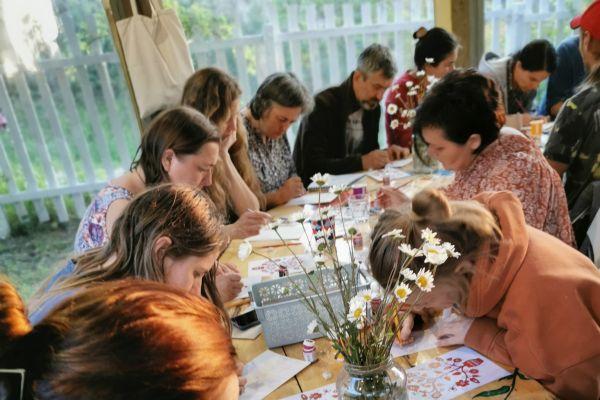
プロジェクト情報
- Ukrainian and English
- https://permaculture.in.ua
- https://www.facebook.com/PermacultureUkraine
- https://www.instagram.com/permaculture.ua
- 84 av. Holosiivsky, Kyiv, 03040, Ukraine
Permayouth Women East Africa
Permayouth Women in East Africa is a group of four women who have been leading a wide range of permaculture education and food growing programmes, as well as activating Permayouth and Permakids groups in their communities.
Programmes have included:
- Permaculture design courses
- Introduction to permaculture
- Tree-planting
- Ecoliteracy and climate education
- Seed saving and sharing
- Composting and waste education
- Mushroom growing
- Washable sanitary pad making
- Sewing
- Arts and music
- Trauma-informed play
- Holistic nutrition and health classes
The programs are free and respond to the kinds of support people ask for and the interests they show.
Much of its work takes place in refugee settlements in both Kenya and Uganda, and all four women have direct experience of being displaced and understand the daily reality of life in these communities. Community permaculture projects provide spaces where people from diverse backgrounds, including refugees from different countries and ethnic groups, can work side by side, fostering mutual understanding.
Through their collaborative efforts they have seen once-degraded landscapes come back to life with green and bird song. Reforestation efforts are restoring tree cover and sequestering carbon. A diversity of plant species has been cultivated to restore habitats, support pollinators and maintain balanced ecosystems, reducing reliance on chemicals.
Permayouth Women in East Africa receives support from the Ethos Foundation and the Permaculture Education Institute.
- 2025
- Established Projects
Pervolarides Thessalonikis
Pervolarides Thessalonikis is a growing grassroots voluntary movement for social mobilisation and cooperative actions in Greece. It unites locals and refugees and builds resilience for its community and vulnerable people through solidarity and social actions.
Activities have included:
- Urban food cultivation as an approach to fight depression and to support people who were losing their jobs from the economic crisis.
- A beekeeping project initiated at the start of the refugee crisis in 2015, which Syrian refugees joined.
- Bringing together locals and refugees for community cooking, food waste reclamation and distribution, as well as production of tomato sauce, jams and pickles.
Through the evolution of relations and networks, Pervolarides Thessalonikis progressively established a holistic regeneration approach based on the relations that form throughout the food cycle. From seeding, cultivation, crop collection, processing and cooking, to reclaiming, reprocessing and redistributing food that would be wasted.
Pervolarides Thessalonikis creates democratic hubs where people of all ages, ethnicities and social status come together to express freely and equally, to co-create with their neighbours and to collectively offer support and resources to those in need. Here, abilities, ideas and resources unite and form dynamic social actions and strong supportive networks, empowering people to overcome exclusion and discrimination and to heal from divisions and inequalities.
- 2025
- Established Projects
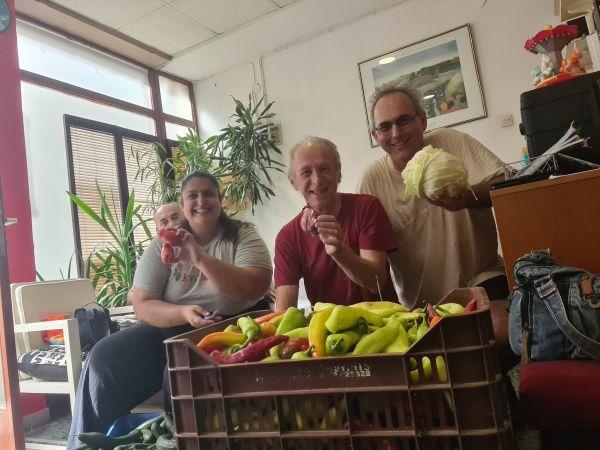
プロジェクト情報
- Greek
- https://www.facebook.com/PervolaridesThessalonikis
- https://x.com/PervolaridesSKG
- Pylaias 17 Thessaloniki Central Macedonia 54454 Greece
Queensland Indigenous Women Ranger Network
Australia’s Indigenous Rangers (land stewards) are vital: bringing together ancient knowledge, passed down from generation to generation, with modern tools like drones that monitor coral changes, forest fires and land degradation. Their work is highly valued as they achieve both environmental and employment outcomes, alongside wider social, cultural and economic benefits.
Indigenous Ranger Programs have created more than 2100 jobs in land and sea management around Australia since 2007 and yet in Queensland only 20% of Indigenous rangers are women. That’s where the Queensland Indigenous Women Rangers Network (QIWRN) comes in.
Established in 2018, QIWRN provides a forum for Indigenous women rangers to:
- Share their experiences, ideas and information.
- Provide support and advice to one another.
- Make connections in remote and isolated communities.
The network has helped build the next generation of women rangers and is helping to increase the number of Indigenous women caring for and regenerating their Sea Country (the sea and coastal environment), with very limited resources. Despite the lack of funds, the programme has trained over 240 women, encouraging new conservation approaches by sharing knowledge and telling stories. Members of the network have gone on to find work as rangers in Queensland or in conservation elsewhere.
Indigenous peoples make up less than 5% of the human population. But they manage or hold tenure over 25% of the world’s land and support 80% of global biodiversity. Less than 11% of the global wildlife ranger workforce is female, and so this project believes that scaling approaches to welcoming more indigenous women rangers is more crucial than ever.
- 2025
- Established Projects
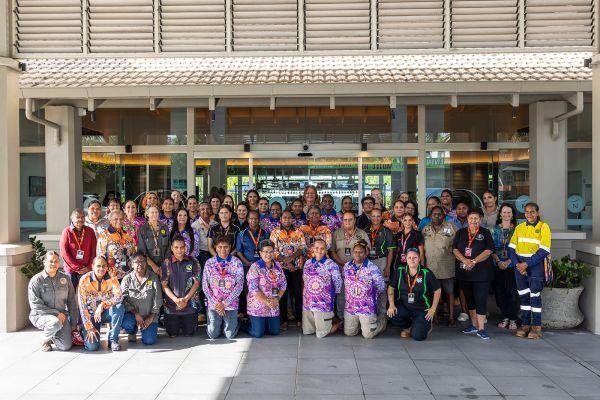
プロジェクト情報
- English
- https://qiwrn.com.au/
- https://www.facebook.com/QIWRN
- https://x.com/QldWomenRangers
- 142 Charlotte Street Cooktown Queensland 4895 Australia
Sítio Semente
Sítio Semente works with syntropic and medicinal agroforestry systems to regenerate degraded areas and to promote the health and resilience of ecosystems and communities.
It is located in Brasília, within the Cerrado biome, the second-largest biome in Brazil and one of the most threatened in the world. About 50% of its vegetation has already been deforested, mainly for agricultural expansion. The Cerrado faces serious risks of losing its endemic biodiversity and water resources, as it is home to the headwaters of the main river basins in South America.
Its main objective is to transform human impact on the planet by developing agroforestry practices that promote harmonious coexistence between people and nature. It shares knowledge through courses, visits, hands-on experiences, and consultancy services.
It began in 2005 with the aim of regenerating degraded areas through syntropic agroforestry systems, producing food, and achieving economic self-sufficiency. In the 19 years since, Sítio Semente has:
- Trained more than 21,370 students, both in Brazil and abroad.
- Regenerated over 47 hectares of agroforests and planted over 2 million trees.
- Produced well over 5,000 tons of diverse foods – enough to feed over 26,000 families annually.
- Sequestered 456,000 metric tons of CO2, contributing to climate mitigation.
- Developed technologies for distilling essential oils, having grown over 220 medicinal plants, mostly native to Latin America.
- Become globally recognised as a reference in syntropic agriculture and influenced national policy.
- 2025
- Established Projects
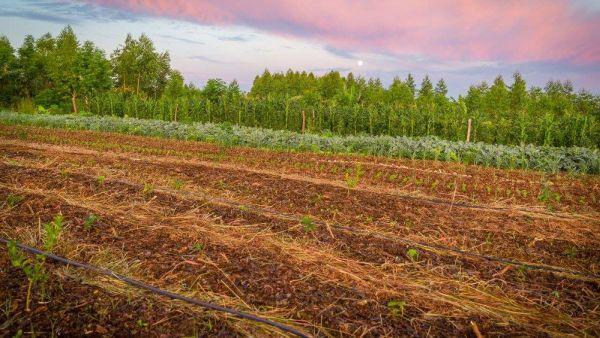
プロジェクト情報
- Portuguese
- https://www.sitiosemente.com
- https://www.instagram.com/sitio.semente/?hl=pt
- https://www.facebook.com/sitiosemente
- Rua 23, Nucleo Rural Lago Oeste, Brasília Distrito Federal, 73100-650, Brasil
Spirit of the Sun
Spirit of the Sun (SOTS) is an Indigenous Womxn-led organisation that was founded in 2002 on the belief that effective and sustainable community development work recognises the intersections of culture, community, economy, and health.
After its founding, SOTS worked primarily on reservations, assisting various communities with economic development. In 2010, its strategic focus shifted to include programming in the Denver area of Colorado, US, responding to a need to empower the growing number of Native youth and young adults moving to urban areas.
In 2019, Spirit of the Sun began to focus its work on Indigenous regenerative agriculture and has been caretaking land ever since. At garden and farm spaces across Denver, SOTS works towards preserving the cultural practices of Indigenous foodways by growing traditional, bioregional foods and medicines. The land is cared for using Indigenous foodways to restore ecosystems, feed the community and preserve Indigenous cultural knowledge for future generations. SOTS also maintains a seed library of heirloom and native seeds – connecting the project to past and future generations.
This work promotes Native and Indigenous self-determination, and resiliency by addressing systemic environmental injustices and food apartheid through Indigenous food-systems sovereignty, traditional foodways, and Indigenous climate justice. Through working with local Native and BIPOC communities, SOTS seek to strengthen economic and cultural resilience through Rematriation and ancestral ecological practices, soil remediation and knowledge sharing.
- 2025
- Established Projects
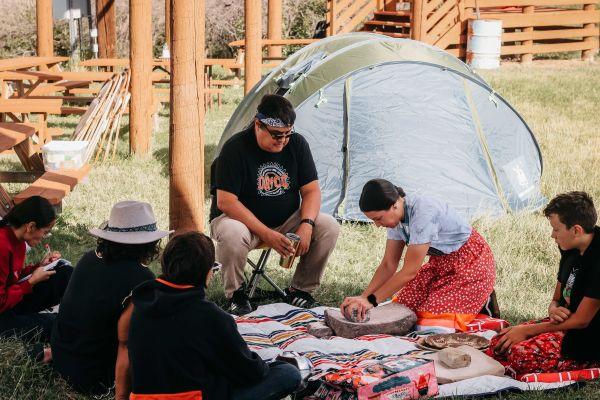
プロジェクト情報
- English
- https://www.spiritofthesun.org/
- https://www.facebook.com/spiritofthesun1/
- https://x.com/SpiritoftheSun1
- contact@spiritofthesun.org
- Denver, Colorado, 80218, United States
Support Humanity Cameroon
Support Humanity Cameroon (SUHUCAM) is a grassroots development and environmental organization, with the objective to build inclusive, self-sufficient and sustainable communities and a world where people live happily in harmony with one another and with nature.
SUHUCAM is an accredited organization with the three Rio conventions and the United Nations Environment Program where they represent voices of communities on the frontline of Climate change.
Its key areas of intervention include ecosystem restoration, regenerative agriculture, climate change adaptation, livelihood support as well as water and sanitation. Its work focuses on women and youths in hard-to-reach communities in Cameroon.
In 2019, SUHUCAM launched Bamunkumbit Integrated Community Forest (BICFOR), a transformative initiative to restore 151 hectares of degraded land while enhancing the livelihoods of local and indigenous communities.
Since the launch of the project, several activities have been implemented to strengthen the resilience and adaptive capacities of local communities. Specifically:
- Over 50 hectares of degraded land has been restored.
- Over 150 women and youths from indigenous Mbororo and local communities adjacent to the forest have been provided with alternative livelihoods, through apiculture and regenerative agriculture.
- Over 500 smallholder farmers engaged in agroforestry practices.
- Four community-based restoration groups established with an active membership of 120 persons
- Four watersheds restored and conserved to harness the natural water supplying the reservoir, ensuring potable water supply to over 4,000 people.
- Collaboration between pastoralists and smallholder farmers (key landscape actors) have been enhanced, creating an enabling environment for sustainable growth for everyone.
- 2025
- Established Projects
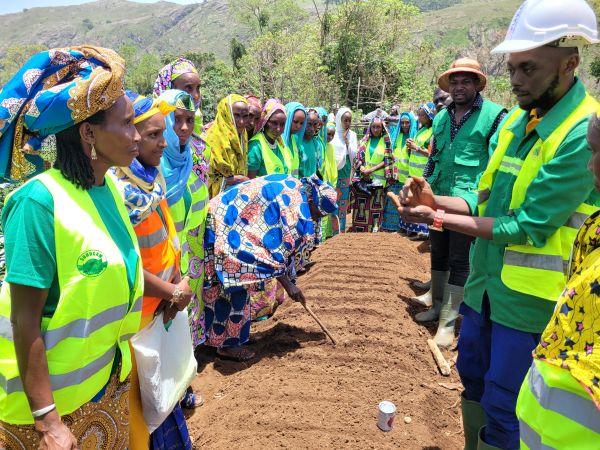
プロジェクト情報
- English and French
- https://www.suhucam.org
- https://www.facebook.com/suhucam/
- https://twitter.com/SSuhucam
- +237674418466
- contact@suhucam.org
- Pesage- Meyos, Soa, BP: 35152 Yaounde, Cameroon
